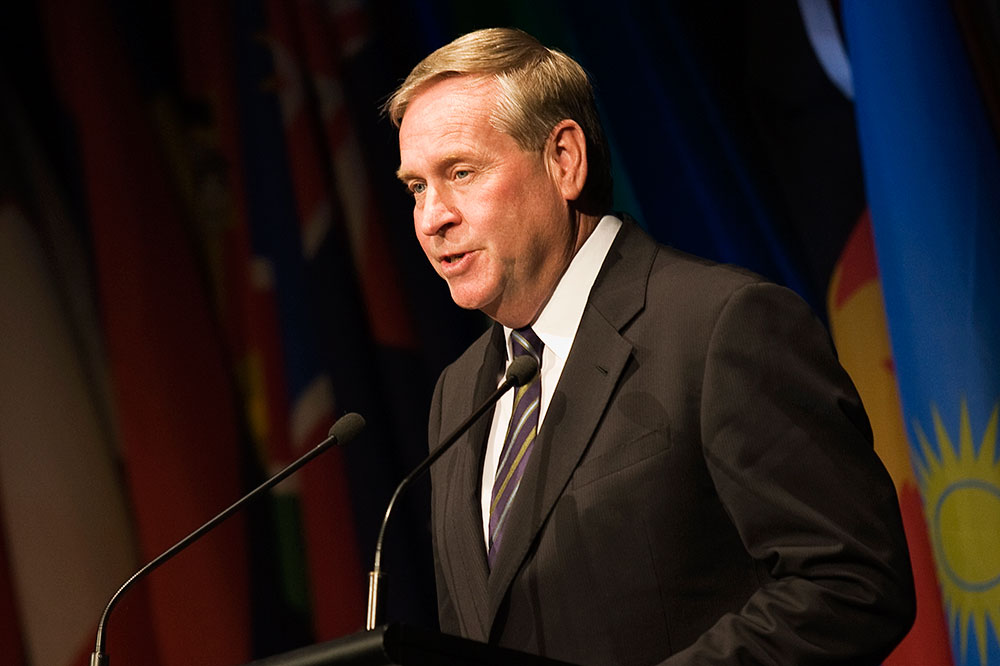
Western Australian Premier Colin Barnett: Commonwealth Foundation.
If you think council rates and CEO salaries are too high, you might have a friend in Western Australian Premier Colin Barnett.
This morning, Mr Barnett took to the airwaves on 6PR and talked frankly about what he thought of the way the local government sector conducts itself financially.
But it’s doubtful that anyone in the local government sector would agree with Mr Barnett’s comments, which reflect an ongoing hostility between the Coalition government and the state’s 139 local governing bodies – particularly after the sector voted down Mr Barnett’s ambitious plan to amalgamate Perth-based councils.
His biggest gripe was that a number of rate increases that householders face were “excessive”, and he also accused councils that “they pay themselves too much”.
“It’s not a pay claim by me, but we have CEOs of local governments in metropolitan Perth who get paid well above what the Premier of the state gets paid,” Mr Barnett told 6PR.
“I’m not looking for a pay rise, but that’s how much their salaries have become excessive,” Mr Barnett said.
However he commended local government services by saying that “a lot of them run well”, but he lamented that “there has been a culture of just increasing the rates and a lack of accountability”.
Mr Barnett’s comments have followed WA Minister for Local Government Tony Simpson’s talk to the 2015 WA Local Government Convention, hosted by the Western Australian Local Government Association (WALGA).
He reiterated Mr Simpson’s talk by saying that councils are going to be more accountable, their costs, their staffing and their rate increases are going to be public.
“People will be able to compare across councils; the number of staff you’ve got should be public too,” Mr Barnett said.
He concluded by referring to the controversial local government mergers his government planned, which were put on hold in February 2015 when the Governor ordered that boundary adjustments that are not supported by councils involved to be revoked.
“I think there needs to be some efficiencies in local government, they had the opportunity to do the reform themselves.
“They changed their mind, so now Big Brother’s looking over their shoulder,” Mr Barnett said.





